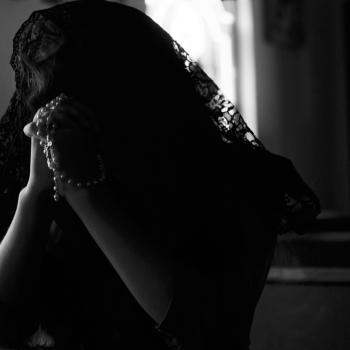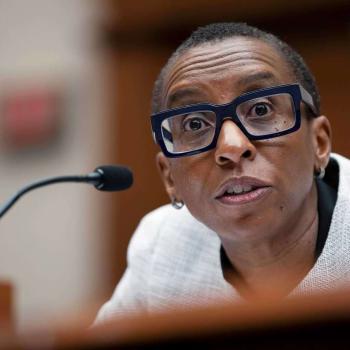And for those unfamiliar with the faith—before getting back to Kate Kelly and John Dehlin—those core teachings include the following:
- A belief in the centrality of the Atonement of Jesus Christ;
- his Resurrection;
- his appearance in our day to re-establish his original Church never again to be removed from the earth prior to his Second Coming;
- a belief in a pre-mortal and post-mortal existence;
- our eternal potential to live together as families forever through ordinances executed by those ordained to his priesthood;
- the Restoration of the Priesthood—his authority to act in his name, conferred personally by John the Baptist, Peter, James and John and others in our day; and
- a living prophet and twelve apostles, called of God, and operating through his Spirit in the calling of local leaders and execution of the Lord's plan.
Within the true and living Church, then, there is room not only for diversity but for honest questions. In fact, the strength of the members resides in the living witnesses of the gospel of Jesus Christ gained individually through prayer, study, and revelation through the gift and power of the Holy Ghost. This comes through asking, seeking, knocking, and receiving a personal witness from God.
Such asking is invited and a vital part of the Latter-day Saint faith. Obedience is not compelled but prayerfully secured, after one's own witness of truth. In fact, classes and councils are filled with faithful questions about service, application of doctrine, and right living.
Dissent: Asking Difficult Questions vs. Becoming a Law Unto Oneself
Unfortunately, as in the case of Kate Kelly, leader of Ordain Women, and blogger, activist John Dehlin, some individuals veer away from core gospel truths, as reiterated here in an official Church statement:
Sometimes members' actions contradict Church doctrine and lead others astray. While uncommon, some members in effect choose to take themselves out of the Church by actively teaching and publicly attempting to change doctrine to comply with their personal beliefs. This saddens leaders and fellow members. In these rare cases, local leaders have the responsibility to clarify false teachings and prevent other members from being misled. Decisions are made by local leaders and not directed or coordinated by Church headquarters.
As this statement elucidates, there is a difference and a distinction to be made between diversity and dissent from official core teachings. There is a difference and a distinction to be made between asking difficult questions, which honest truth-seekers are always invited to do, and pushing beyond prophetic answers and sound doctrine to false ideologies that can spread and become detrimental to the faith of the whole.

This Church Dispensation Began With a Question
In fact, this entire dispensation began with a young boy who asked a difficult question: Which of the existing churches is true? He had the courage to ask God, and his answer, a personal visitation and subsequent direction to re-establish his kingdom on earth, The Church of Jesus Christ, is the result. The Church thrives on the principle of open revelation within one's own sphere and as worthy of that revelation, and respects the admonition to ask, seek, knock.
So let's be clear. This action on behalf of Kate Kelly and John Dehlin is not the result, as it's been portrayed in the press, of asking faithful questions; it's about a lack of acceptance of provided answers. Further, it's the result of willfully and openly abandoning "core teachings" of the gospel of Jesus Christ, and persisting on that path while drawing others to it.
In Kate's case, setting up a platform and advocacy group for women to be ordained the priesthood, manifest in activism on sacred grounds (Temple Square), after requests to express opinions elsewhere and privately, and counter to prophetic revelation on the subject of the priesthood, extends beyond asking questions.
John, on the other hand, stated himself that he'd lost his acceptance of some fundamental truths in the faith. He also shared his stance with a public readership.
It is often the case that when members are advised, they realize their errors and change their positions. However, some seem to decide to become "a law unto themselves." They decide they know how things should be, and they encourage others to follow them in their dissent and descent. Where significant dissent exists, a disciplinary council affords a time to approach those doctrinal digressions and differences. These calls to council—note the word "council"—are deliberate, not hasty calls. One is invited to attend these meetings only after prolonged and persistent positioning of oneself in opposition to those who lead and guide the Church, and its respective teachings. Again, referring to the official church statement:




